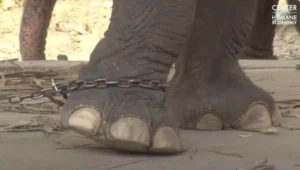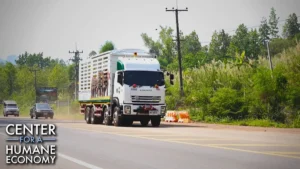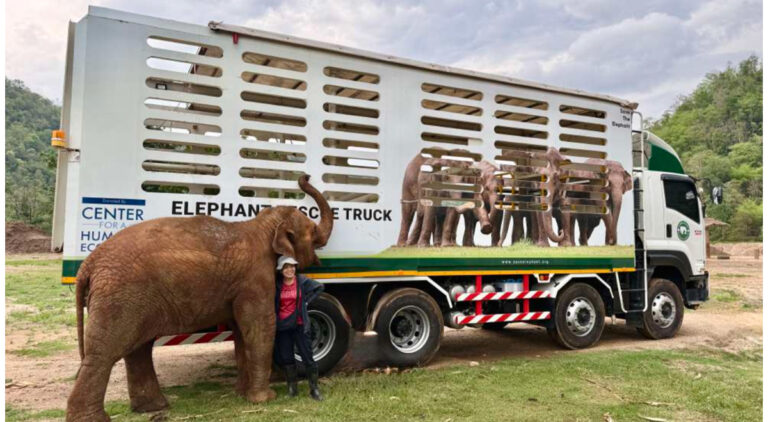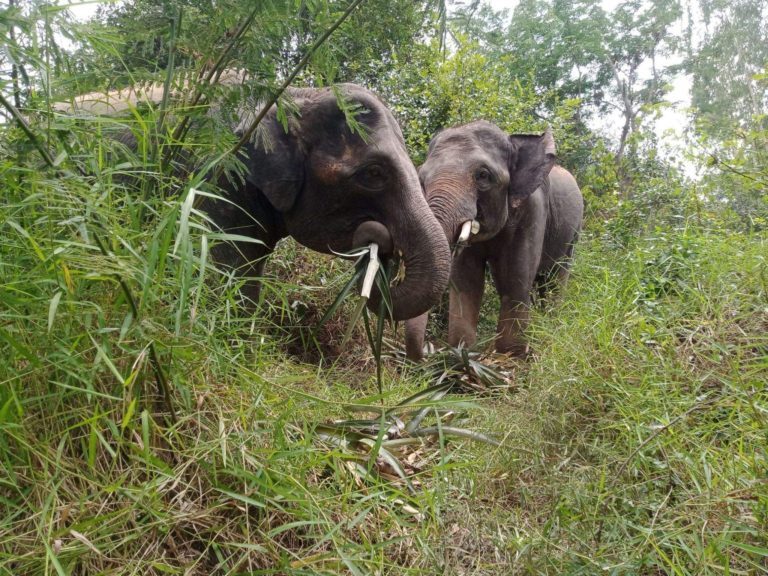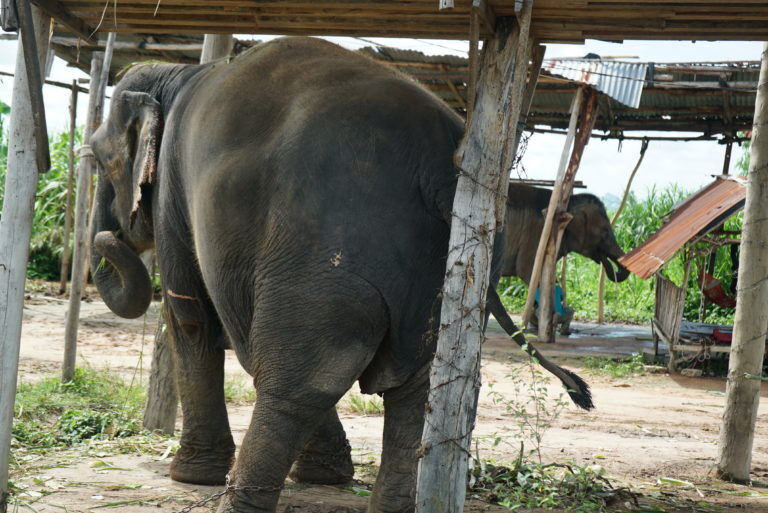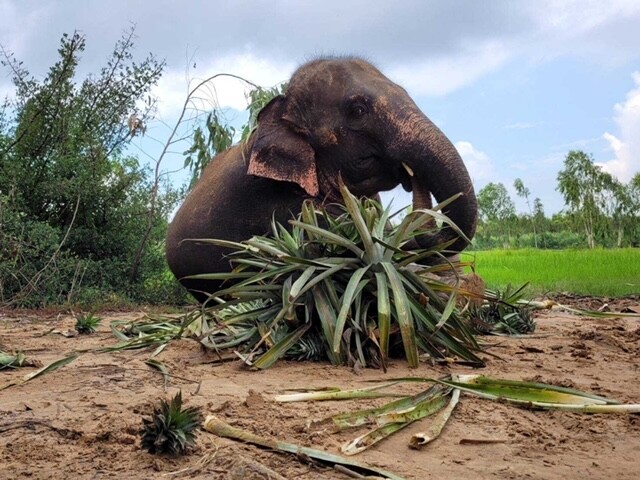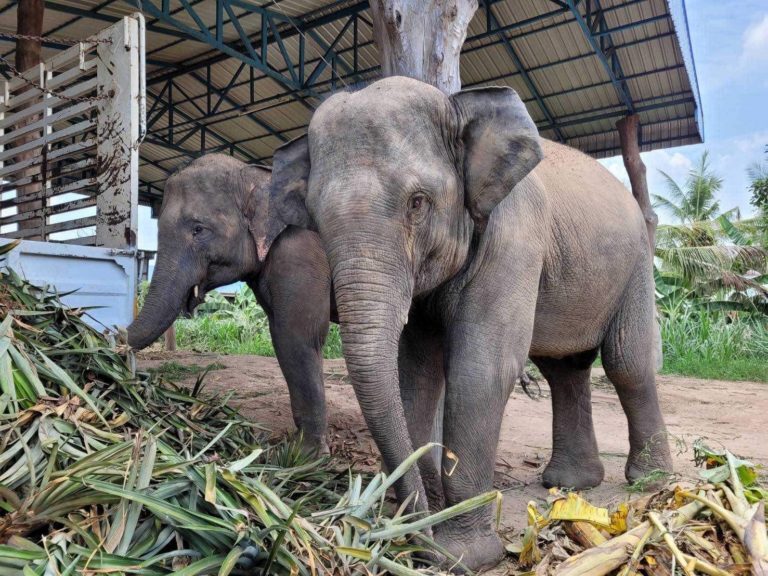Helping Elephants in Crisis
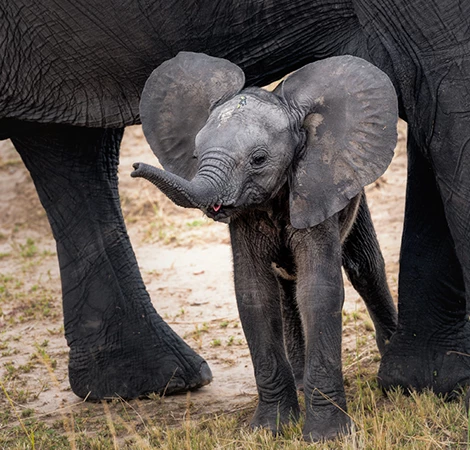
Thailand’s captive elephants face decades of privation, forced labor, maltreatment, and other abuse. We are working to change Thai law to protect them and to provide shelter and care for those being rescued today.
About the Elephant Nature Park in Thailand
Your donations have directly enabled the rescue of Som Boom and NamThip. Please contribute today to help us care for these elephants in their new sanctuary haven and to bring other elephants to safety with them.
The Center for a Humane Economy is continuing its ongoing support of this sanctuary. During the COVID shutdown, we funded provisions to feed more than 1,000 tethered, starving elephants. Now, we are zealously supporting the work of Lek Chaillet, founder of the Elephant Nature Park in Thailand and Save Elephant Foundation. We have done so by providing a elephant-rescue vehicle, purchasing elephants out of captivity, and acquiring and developing property so that more elephants can live out lives of safety and plenty. Also, our work continues within the Thai government to end the exemption of elephants — classified as “transportation,” not animals — from state welfare laws. This includes pressuring the U.S. government to leverage its trade relationships with Thailand to effect change.
This year, Thailand has experienced unprecedented flooding that swamped communities and drowned and imperiled wildlife across the region. Among those affected are the elephants at The Elephant Nature Park, which is a renowned sanctuary dedicated to rescuing and rehabilitating elephants from various forms of exploitation. The Center for a Humane Economy has been a major supporter of this spectacular sanctuary.
So far, two elephants — one of them old and blind — have died. The preserve has also lost all of its water buffalos (about 40 of them) and its pigs and numerous cats and dogs — hundreds of animals. Also gone is the supply of food for the elephants still struggling to survive. All just swept down the river. The photos are devastating.
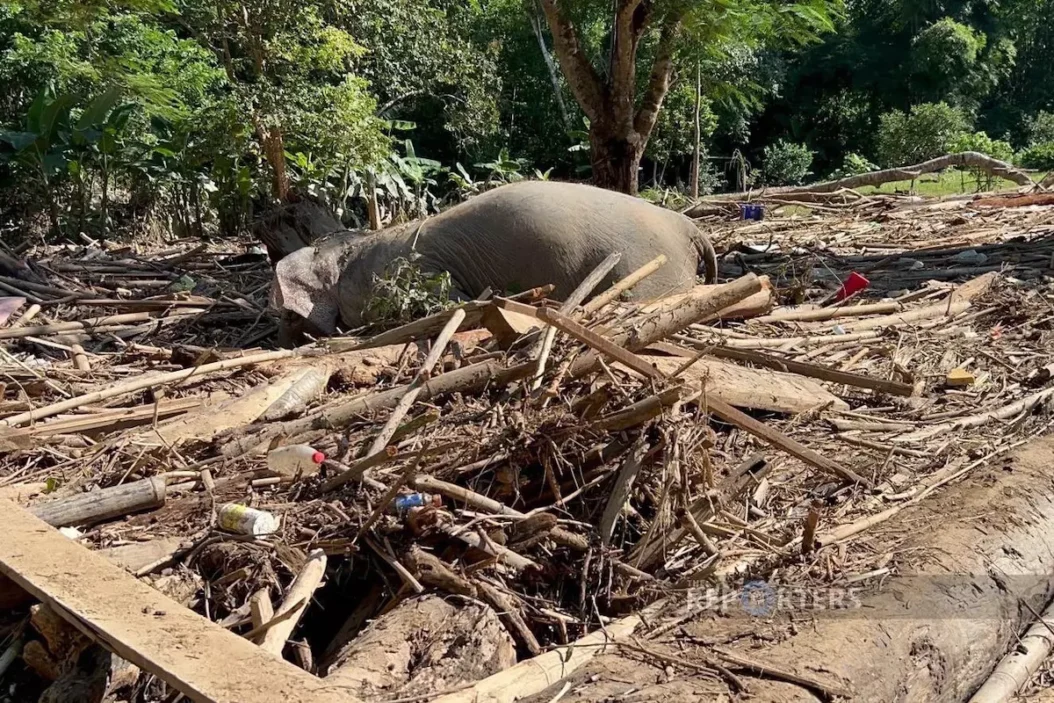
The Impact of Flooding on The Elephant Nature Park
The torrential rains have led to rising water levels, inundating parts of the sanctuary and creating challenging conditions for both the elephants and the dedicated staff. While the park is designed to support the well-being of its residents, the flooding presents unique challenges that threaten their safety and health.
As natural habitats are compromised, elephants face increased risks, including:
- Safety hazards. Rising water levels create potential dangers as elephants navigate unfamiliar terrain, posing a risk of injury.
- Food supply. Flooding has disrupted the availability of natural food sources, forcing the park to seek alternative diets for the elephants to ensure their nutritional needs are met.
- Health risks. Stagnant water can lead to the spread of diseases and parasites, posing significant health concerns for the elephants.
Our Response
The Elephant Nature Park is actively mobilizing resources to address these challenges. Their dedicated team, with our support, is working tirelessly to help ensure the safety of the surviving elephants and other animals. We are supporting emergency measures, including building barriers and creating safe areas where the elephants can reside without the threat of rising waters.
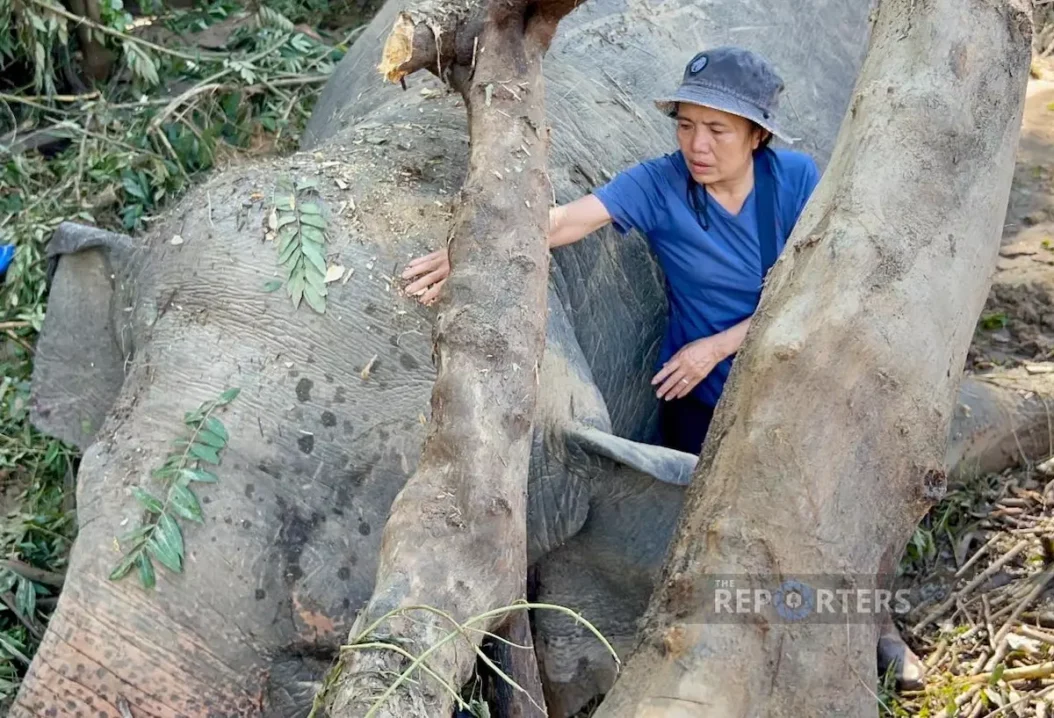
The Other Challenges
Not only is Thai law an obstacle, so is a pervasive acceptance of elephant riding as part of an entertaining tourist experience. We must educate travelers about the abuse young elephants endure before the first customer mounts a saddle on their back. This includes “crushing” — the practice that breaks the animal’s spirit by isolating them in wooden cages, separating from their mothers, and beating and starving them. The outcome is that they become terrified of humans and will accept whatever their captors force upon them.
Now, with the post-pandemic tourism resurgence, we must be more aggressive to influence Thai law, rescue more elephants from their abusers, and care for the ones who have been brought to safety.
Leaders
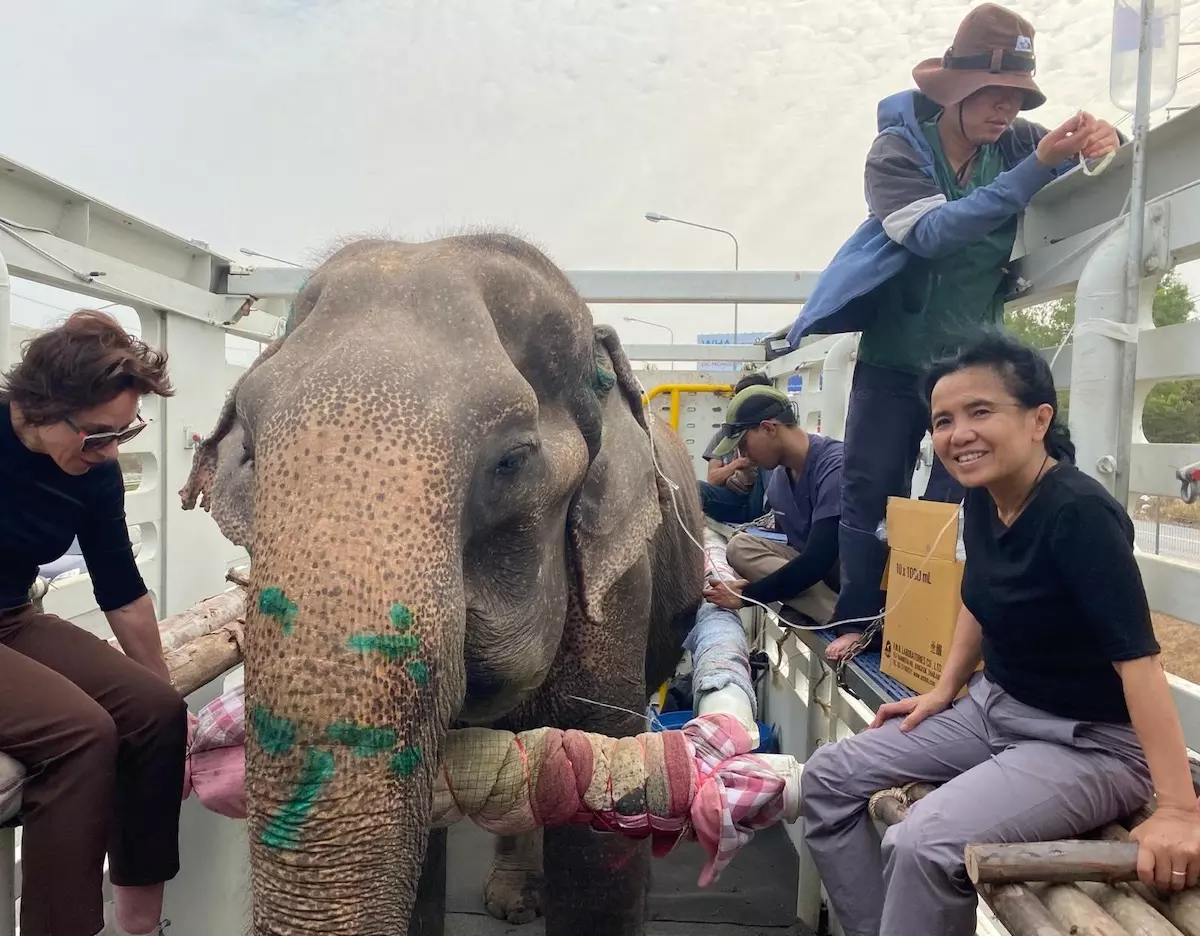
Lek Chaillet, founder of the Thai Elephant Nature Park and Save Elephant Foundation, has been at the center of animal rescues and establishing safe sanctuary for retired and discarded captive elephants for many years. She has created a humane-model sanctuary and endorses and supports other Thailand facilities. She has established a foster program for as many of the unfed elephants as she can afford to support and created a food bank to accept donations of food acceptable to elephants and donations to purchase food.
Videos
Read More About Our Campaign
Actions to Take
Donate
The elephants there need our help NOW!
PLEASE DONATE NOW!
Your support is crucial during this crisis. Contributions will go directly towards relief efforts, including food supplies, veterinary care, and emergency management.
Make a difference here